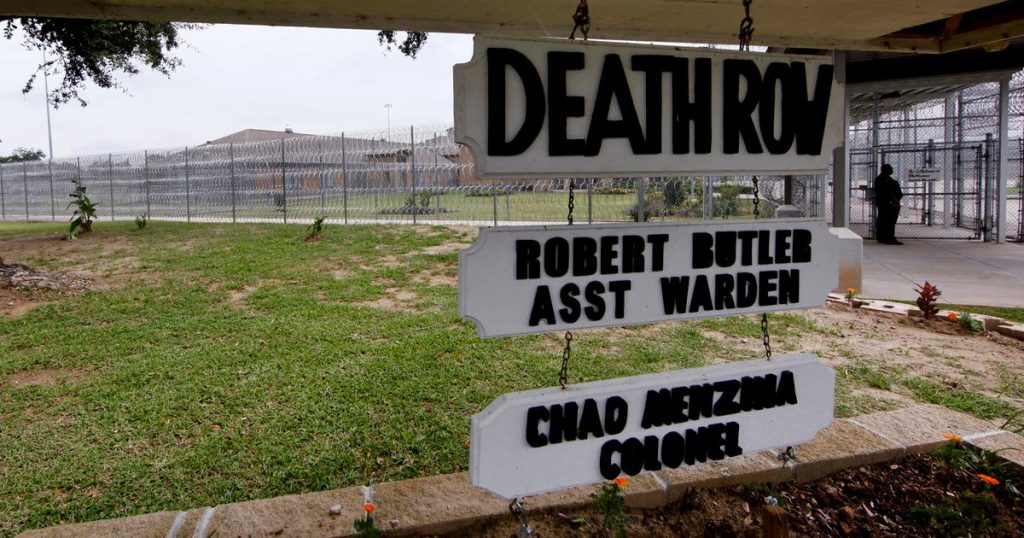Louisiana’s Return to Capital Punishment
Louisiana has announced its intention to resume executions after a 15-year hiatus, with plans to carry out death sentences using nitrogen hypoxia. The state’s updated execution protocol was released by Governor Jeff Landry’s office, signaling a significant shift in the state’s approach to capital punishment. Despite the current roster of 63 individuals on death row, Louisiana has not executed anyone since 2010 due to a combination of legal challenges, political opposition, and difficulties in obtaining lethal injection drugs. Governor Landry’s statement, "The time for broken promises has ended; we will carry out these sentences and justice will be dispensed," underscores the administration’s commitment to moving forward with these executions.
The Approved Methods of Execution
In Louisiana, there are three officially approved methods of execution: lethal injection, electrocution, and nitrogen hypoxia. Lethal injection remains the default method, but the state has introduced nitrogen hypoxia, an experimental procedure, as an alternative. This method involves the use of a face mask to administer pure nitrogen gas, which replaces the oxygen in the inmate’s lungs, leading to death by hypoxia (oxygen deprivation). The decision to adopt nitrogen hypoxia follows a similar move by Alabama, which conducted the first known execution using this method in January 2024. The execution of Kenny Smith in Alabama was highly controversial, with several witnesses, including reporters, describing it as potentially torturous. The lack of transparency and understanding surrounding nitrogen hypoxia has raised significant ethical and legal concerns.
The Controversy Surrounding Nitrogen Hypoxia
The use of nitrogen hypoxia is not without controversy. This method has been tried only a handful of times in the United States, and its effectiveness and humaneness are still subjects of debate. In Alabama, the execution of Kenny Smith was widely criticized for appearing to cause prolonged suffering. Witnesses described Smith’s convulsions and visible distress, calling into question the method’s ability to provide a painless death. The ethical implications of using an experimental and poorly understood method to carry out executions are significant, particularly given the potential for inhumane treatment. Louisiana’s decision to adopt this method, despite the limited information available, has drawn criticism from human rights groups and legal experts who argue that it is a step backward in the quest for humane and just punishment.
The Legal and Political Landscape
The decision to resume executions in Louisiana is not without legal and political challenges. The state’s death row population has been growing over the past decade, with many inmates waiting for years for their sentences to be carried out. However, the use of lethal injection has been complicated by a national shortage of the drugs required for the procedure, as well as legal challenges questioning the constitutionality of the method. The introduction of nitrogen hypoxia is seen as a potential solution to these issues, but it also introduces new legal and ethical questions. Governor Landry’s call for district attorneys to finalize these cases and for the courts to move swiftly is a clear indication of the administration’s determination to overcome these obstacles. However, the road ahead is likely to be fraught with ongoing legal battles and public scrutiny.
The Broader Context of Capital Punishment
The debate over capital punishment in Louisiana is part of a larger national conversation about the role of the death penalty in the United States. While some states have moved to abolish the death penalty, others, like Louisiana, are committed to its use. The introduction of nitrogen hypoxia as an execution method reflects a broader trend of states seeking alternative means to carry out capital punishment in the face of challenges to traditional methods. This trend has been driven by concerns over the ethical and practical issues associated with lethal injection, as well as the increasing difficulty of obtaining the necessary drugs. The use of nitrogen hypoxia in Louisiana and other states highlights the ongoing tension between the desire for justice and the need for humane and constitutional methods of execution.
The Future of Execution in Louisiana
As Louisiana moves forward with its plans to resume executions, the state will be closely watched by human rights organizations, legal experts, and the public. The use of nitrogen hypoxia, an experimental and poorly understood method, will likely be the subject of intense scrutiny and legal challenges. The state’s decision to adopt this method, despite the ethical and legal concerns, reflects a commitment to carrying out death sentences, but it also raises questions about the state’s broader commitment to humane and just practices. The next few months will be crucial as the state’s execution protocol is put into practice, and as the legal and ethical implications of this decision continue to be debated. The path forward for Louisiana’s capital punishment system is uncertain, but it is clear that the state’s decision to resume executions will have far-reaching consequences.












